Thanks for your support! If you make a purchase using our links in this article, we may make a commission. And, as an Amazon Associate, I earn from qualifying purchases. See the full disclosure here.
Will there be a gas or diesel motorhome ban in the U.S.? The truth is that it’s not likely, but the situation is more in-depth than a one-line answer.
This article will go over the gas and diesel engine bans and laws in the U.S. and abroad.
We’ll cover exactly what that means for the RV industry. And, perhaps most importantly, we’re answering the question: “is it still worth it to buy a diesel motorhome?”
Let’s dig deeper.
Will the U.S. Ban Gas and Diesel RVs?
The European Union (E.U.) and Britain want to have all gas and diesel vehicles off the roads by 2050 to cut emissions – that includes RVs. So will the U.S. follow suit with a gas and diesel motorhome ban? We don’t think so – at least not anytime soon.
We are entirely too dependent on our current infrastructure to expect to see drastic changes like outright bans on gas and diesel RVs in the near future.
Although many electric vehicles are already in production, we’re still heavily reliant on gas and diesel engines.
Additionally, there are electric RV option concepts in the planning and prototype stages, but none have reached full-scale production or distribution in the United States yet.
While we can likely expect to see more emission regulations in the years to come, it’s unlikely that we will see a full-out ban on diesel or gas motorhomes.
Why Is This Even In Question?
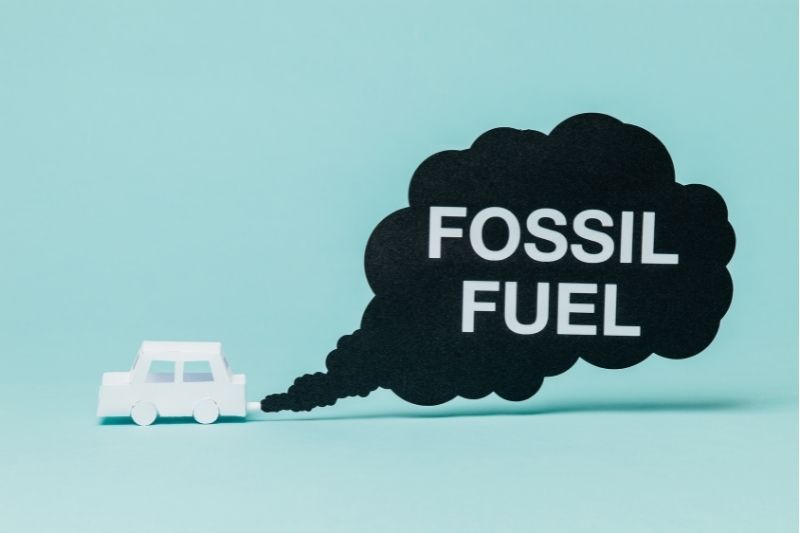
The main goal of getting rid of gas and diesel engines is to cut emissions.
As you might know, the US rejoined the Paris Agreement on Climate Change in February of 2021. This agreement aims to fight man-made global warming contributing to climate change.
Under the agreement, the U.S. promised to reduce emissions by 25% by 2025 compared with emission levels in 2005.
However, according to analysts, the US is only on track to reach a 17% reduction.
According to Reuters, the United States has emitted the largest carbon dioxide since the industrial revolution. However, our emissions have been and are falling thanks to environmental regulations.
Is it Worth Buying a Diesel Motorhome?
If you’re wondering if it’s still worth buying a diesel motorhome, it is. If you buy a Class A, Class B, or Class C diesel motorhome today, you don’t have much to worry about giving up your motorhome in the near future.
New bills and proposals are indeed popping up in certain states talking about ending gas and/or diesel car sales within the next 10 to 20 years.
However, at the current moment, the laws states are adopting have to due with the sale of light-duty vehicles.
The focus relates to transitioning daily cars, family SUVs, and 150/1500 series pickup trucks from fuel-powered to electric-powered (EV).
The legislation talks about halting sales of new emission-creating vehicles, not banning those currently on the road.
Is Diesel Fuel Really Bad for the Environment?
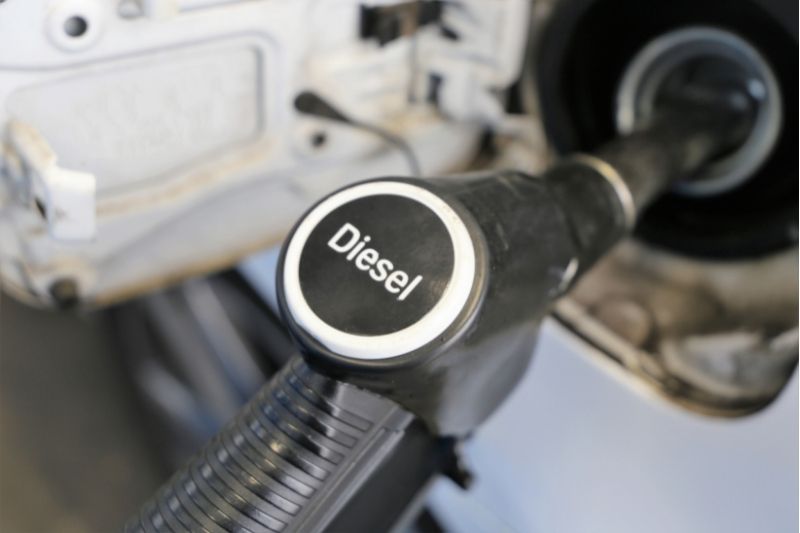
The exhaust created by the combustion of diesel fuel has led to negative environmental and health issues that need to be solved.
Emissions from diesel engines contribute to the production of ozone that damages crops, trees, and other vegetation. It also leads to the production of acid rain that affects soil, lakes, and streams — and then enters the human food chain in our produce, meat, and fish.
However, the Diesel Emissions Reduction Act program created under the Energy Policy Act in 2005 gave the EPA authority to help reduce diesel emissions.
This led to the creation of DEF – diesel exhaust fluid — in 2010. DEF is a solution injected into diesel vehicles’ exhaust that turns harmful emissions into nitrogen and water.
As a result, according to the Environmental Protection Agency (EPA), diesel engines manufactured today are cleaner than they’ve ever been before.
Reducing Emissions Doesn’t Have to Mean an All-Out Gas or Diesel Motorhome Ban
“Innovation is the ability to see change as an opportunity – not a threat.”
-Steve Jobs
Reducing emissions doesn’t have to mean an all-out ban on the sale of gasoline or diesel engines.
Things like DEF (or AdBlue in Europe) added to diesel vehicles have helped cut diesel emissions drastically.
And there’ve been other innovations in the diesel engine industry that aim to make engines more efficient.
One such innovation is the turbocharger. Contrary to what it might sound like, turbos are green technologies that increase fuel efficiency and reduce toxic emissions.
Toxic exhaust emissions are a byproduct of engine combustion, and no engines fully or completely burn the fuel they use.
A turbocharger helps the engine burn more fuel at once. This process increases the energy the engine receives from the fuel and leads to less toxic emissions.
Will Certain States have Diesel Motorhome Bans?
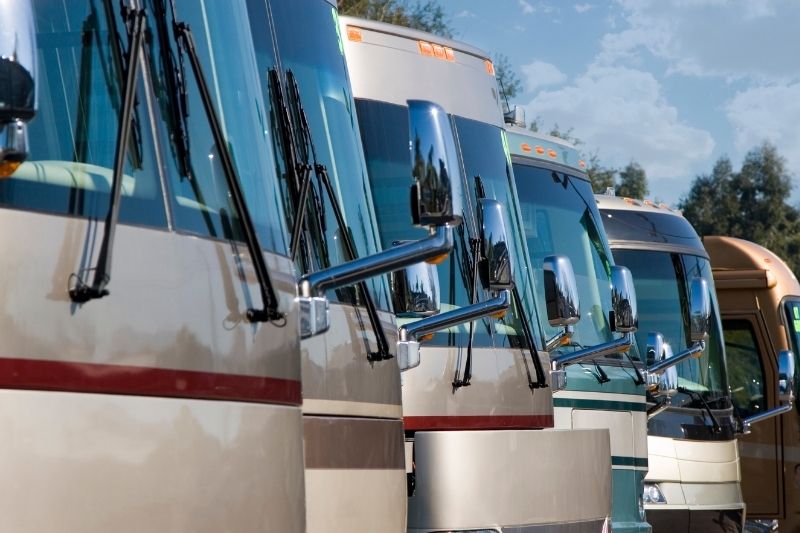
States like New York and California each have bills proposed to end the sales of new gas and/or diesel-powered vehicles by the mid 2030’s.
State of California’s Vehicle Legislation
In 2020, California announced an executive order to ban the sale of new gas and diesel-powered passenger vehicles and light-duty trucks by 2035.
This order gives heavy-duty combustion vehicles like trucks and buses an additional decade to comply. However, even the 2035 date is still over a decade away.
This order will halt the sales of new gas and diesel-powered vehicles in the state, but it doesn’t say anything about the ones currently on the road.
In 2021, the California Air Resources Board (CARB) introduced a bill to require heavy-duty diesel vehicles over 14,000 pounds to undergo periodic emissions testing.
And initially, this legislation, known as California Senate Bill 210, also included vehicles like diesel motorhomes. As reported by the RVIA, the bill would apply to any diesel motorhome in California, even if that wasn’t the vehicles ‘home state.
Fortunately, CARB retreated on the bill requirements after industry associations like the RVIA and the National Association of RV Parks and Campgrounds (ARVC) owners fought back for a more reasonable one.
If this bill had passed as originally proposed, it would have had detrimental impacts on diesel motorhome owners all over the country and the residents and towns in California that economically rely on tourism.
State of New York Vehicle Legislation
New York State followed suit in late 2021, introducing legislation that will require all new passenger cars and trucks sold in the state to be zero emissions by 2035.
This law also includes new off-road vehicles like ATVs and side-by-sides.
Like the California law, new medium-duty and heavy-duty vehicles will have until 2045 to phase out emission-producing vehicles.
Other State Vehicle Legislations
The State of Washington recently passed a law stating that by 2030, new gas and diesel-powered light-duty vehicles won’t be able to sell or register in the state.
Massachusetts passed a law similar banning the sale of gas or diesel light-duty vehicles by 2030.
The State of Virginia Voted HB 443 into law in January 2022. This law allows state parks to install EV charging stations within the park.
Third parties that will run the stations won’t be able to use traditional payment methods for people to use these charging stations. The details are still being worked out.
The U.S. Government Will Play Their Part

Under an executive order signed by President Joe Biden in late 2021, The U.S. government plans to end purchases of gas-powered vehicles by 2035.
This move promotes lower emissions and increases electric vehicle sales around the country.
According to Reuters, the government owns more than 650,000 vehicles and purchases around 50,000 vehicles annually.
This executive order states that all light-duty vehicles acquired by the government will be emission-free by 2027. However, this policy allows exceptions for military and space vehicles.
The National Highway Traffic Safety Administration (NHTSA) and President Biden also released a statement saying that by 2026, the federal government has a goal to have an average fuel economy of 49 miles per gallon for all light-duty vehicles.
What is a Light-Duty Vehicle
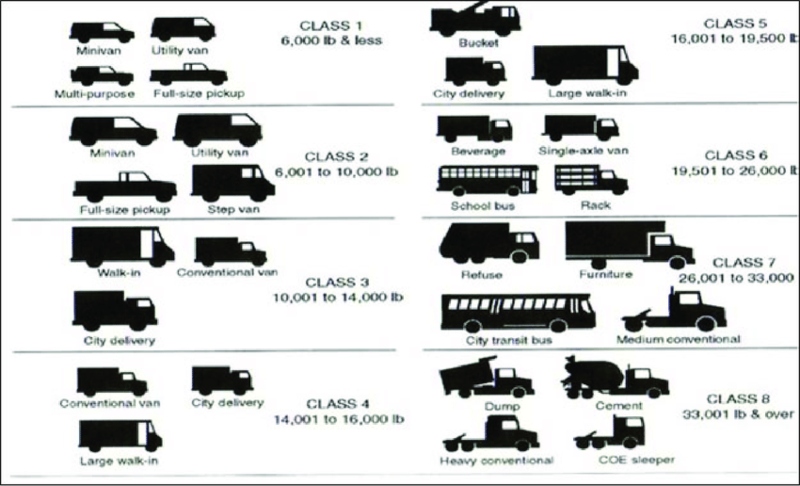
According to the Department of Transportation, A light-duty vehicle is any motorized vehicle on the U.S. public roadway system that weighs 6,000 pounds or less. This includes:
- All Passenger Cars
- Minivans
- All Crossover Sizes
- Small and Mid-Size SUVs
- 150/1500 Series Full-Size Vans
- 150/1500 Series Pickup Trucks
Most Class A, B, and C motorhomes fall under Class 2 vehicles, so they would be exempt.
To clear things up, if someone wanted to buy a new Winnebago Solis Pocket that uses the Dodge Ram 1500 after 2030, they would want to look for it or something similar as an all-electric Class E motorhome (E for Electric).
Someone looking for the Dynamax Isata 5 large chassis Class C motorhome that uses the Dodge Ram 5500 chassis could still find it with its diesel-powered engine.
Although instead of the 6.7L V8, it may have a more fuel-efficient engine or a hybrid. It all depends on what the laws and technology look like in 2030.
What Will Happen to Diesel Motorhomes in the U.S. After 2030?

The honest truth? Not much.
States like California and New York are pushing to halt emission-producing passenger cars by 2045. However, this just applies to cars and light-duty trucks.
Medium and heavy-duty vehicles (like motorhomes) will have until 2045 to halt production in these states.
While those states may not be producing new diesel motorhomes after 2045, older ones will still be on the road.
And diesel motorhomes have an average lifespan of 30 years, depending on their maintenance.
These laws, bills, and proposals are an effort to move towards cleaner transportation.
But things like this take time – a lot of time. As a country, we aren’t likely to see major effects in the ability to purchase gas or diesel motorhomes until the 2040s or 2050s.
And, even then, previous year models will still be on the road. They’re not banning the vehicles we already own.
We may see more regulations like periodic emissions checks in the decades to come. However, it’s highly unlikely that the motorhomes we own now (or may purchase in the near future) will be banned.
Are Other Countries Banning Diesel Motorhomes?
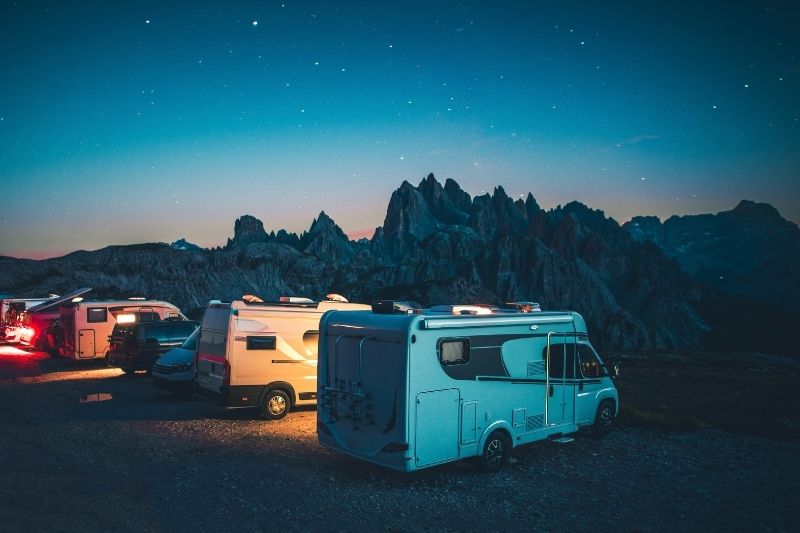
The European Union plans to end the sales of emission-creating vehicles by 2035. And yes, this will include a gas and diesel motorhome ban.
According to the European Commission, any new vehicles registered from 2035 on must be zero-emission vehicles.
Additionally, Britain plans to end the production of all gas and diesel cars, RVs, and commercial vehicles by 2030 to 2040.
Under this plan, diesel and gas passenger vehicles will not be sold after 2030. Smaller and light-duty emissions-creating engines will not be sold after 2035, and heavy-duty gas and diesel engines will not be sold after 2040.
In addition, China wants to ban the sale of new gas and diesel cars by 2035.
Canada wants to implement a ban on new gas and diesel sales by 2035, but they’re being a bit more aggressive in their approach.
Canada also wants all gas and diesel vehicles to be off the roads entirely by 2050.
According to MotorBiscuit, Norway might be the most ambitious of all. Norway wants to ban the sale of new gas and diesel cars by 2025.
Winnebago and Thor Unveil Electric Motorhomes at the 2022 Florida RV SuperShow
Winnebago and THOR unveiled new e-RV concepts at the 2022 Florida RV SuperShow, making them the first all-electric zero-emission motorhomes from major RV manufacturers.
The Flying W built their e-RV on the Ford Transit chassis. The Winnebago electric RV is said to incorporate an advanced drivetrain and battery package that powers every single area of the coach.
The current concept vehicle has a range of 125 miles while powering all onboard systems.
Just one day after Winnebago unveiled their e-RV concept, THOR industries debuted their own electric motorhome called the Vision. It uses the Mercedes-Benz Sprinter as the chassis.
This electric RV will have a 300-mile range powered by a high-capacity battery pack and an integrated fuel cell to extend the range, although they have not elaborated on what the “fuel cell” is.
The THOR Vision vehicle is a large class B style motorhome with a fully digital experience from the charging to the cockpit and in-RV experience.
Can I Buy an All-Electric Motorhome Now?
Currently, there are no waitlists, reservation lists, or production timelines for any electric motorhomes in the U.S.
Electric vehicle technology is still relatively new, and EV adaptation into the RV industry is coming along, but we aren’t quite there yet.
These electric motorhomes sound incredible, and we can’t wait to see how they evolve and come to market.
However, Winnebago has repeatedly stressed that their e-RV is just a concept that has only been driven a few thousand miles. They cannot give a time frame for production.
Additionally, Thor hasn’t released any information on a production time frame for the Vision, either.
No Need to Worry About a Diesel Motorhome Ban… For Now
In conclusion, there’s no need to worry about a gas or diesel motorhome ban in the US… at least not for now.
When the sale of gas and diesel vehicle bans take effect in New York and California in the mid-2030s – 40s, we still won’t likely see an effort to remove older models from the roads for decades.
The truth is, we don’t have a ton of great transportation alternatives yet.
Sure, there are electric cars. But they’re small – we have no heavy-duty electric vehicles yet.
And our nation’s economy relies heavily on heavy-duty diesel-powered vehicles to transport goods across the country. Not only that, many small towns and city economies rely on road trips and RV tourism to stay afloat.
So, if the idea of a gas or diesel motorhome ban kept you up at night, hopefully now you’ll sleep a little easier.
And yes – it’s still worth it to purchase that diesel motorhome you’ve been eyeing.
Related Reading:
1. Gas vs Diesel RV – Which Are Best for Fuel, Maintenance, and Longevity?
2. 5 Most Fuel Efficient Camper Vans
3. Class A vs Class C Motorhomes and How to Choose
4. Fifth Wheel vs Class A Motorhome
5. 10 Reasons to Avoid Drivable Motorhomes
About the Author
Carrie Wilder is a part-time van lifer, full-time nomadic lifestyle enthusiast, and the advertising and SEO Manager at Escapees RV Club.
When she’s not camping or working, you can find her writing about her favorite marketing tips on her website, The World Wild Web, or befriending the nearest cat.


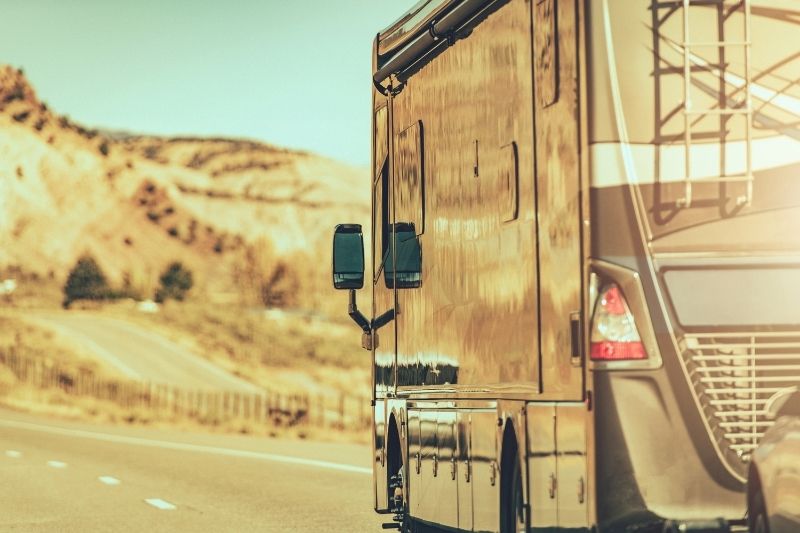
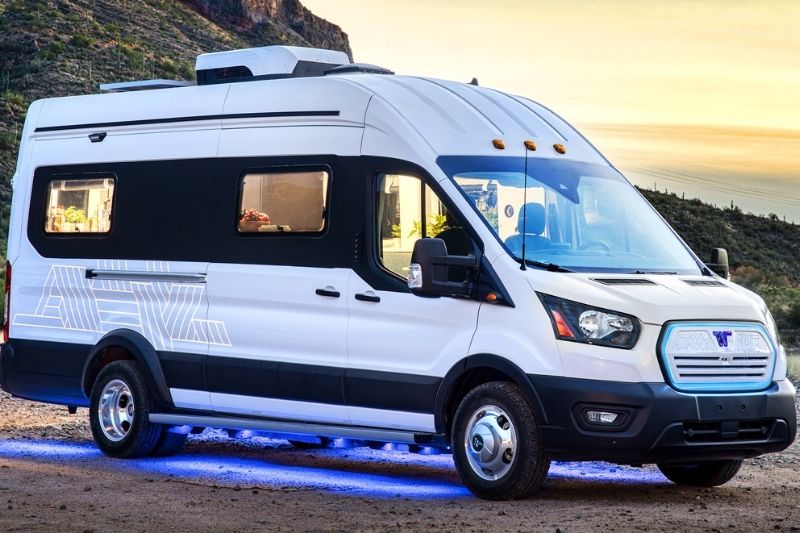
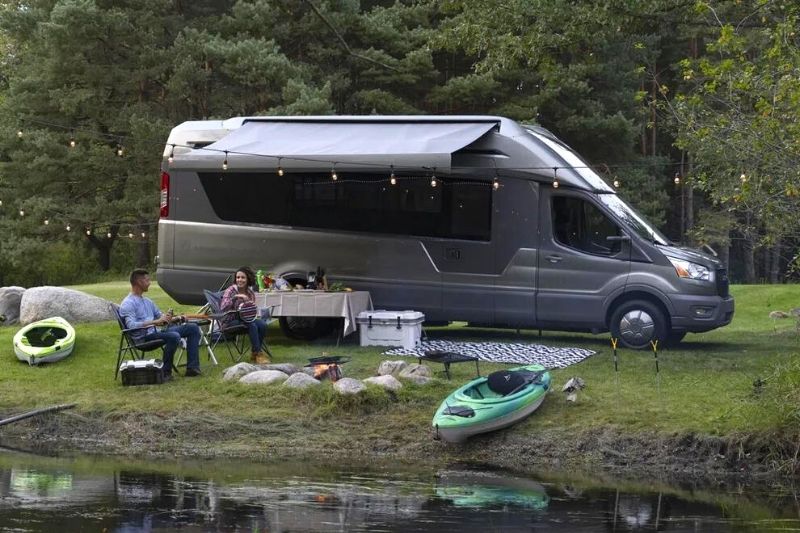
i doubt this will happen under the schedules stated, and a lot of this is executive actions and has skipped the proper legislative process. Cal. 2 yrs in a row now have had periods where EV owners were asked not to plug in due to not enough electric power. you mentioned china right now they have blackouts and they are continuing to build coal generation. and right now they are the number 1 co2 producer . since the USA is one of the only countries who has cut emissions.
and take into account all human activity cars homes factories food is 13% of co2 and since humans breath co2 cannot go to 0. natural contributers to co2 is 87%